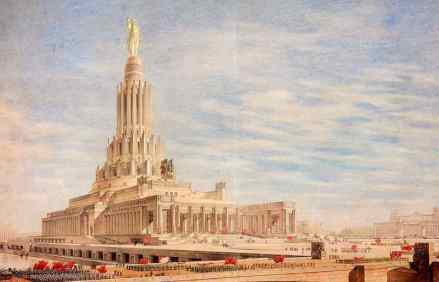The Soviets were imperialists. Stalin’s architecture proves it
The invasion of Ukraine by Russian forces has rendered what might otherwise have seemed a fairly niche study of a Soviet-era architect rather more resonant. Boris Iofan was born to a Russian-speaking Jewish family in Odessa in 1891. After initial studies in his home city and a brief period working with his older brother Dimitri in St Petersburg, he fled the war engulfing Tsarist Russia for Italy, where he trained at the Istituto Superiore di Belle Arti in Rome. During his ten years abroad he married a half-Russian, half-Italian aristocratic divorcée, became a communist, palled up with the future Soviet premier Aleksei Rykov (who was to act as his political


